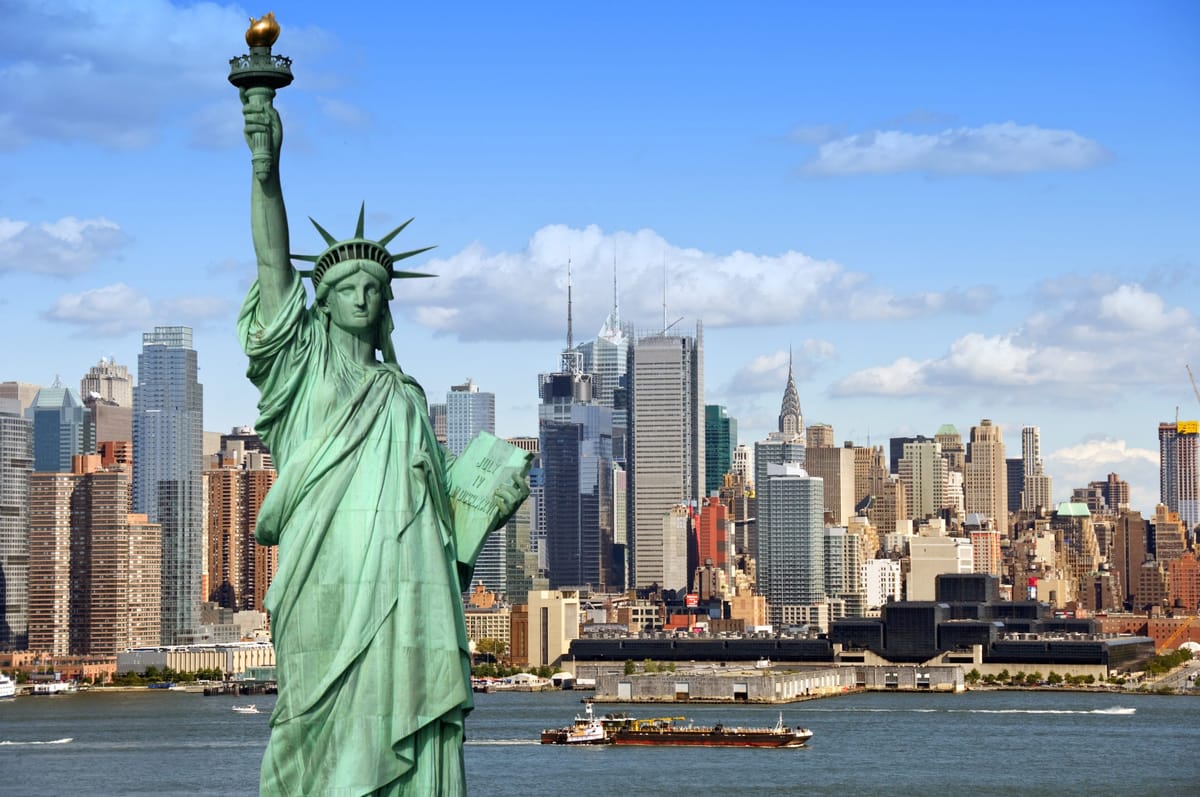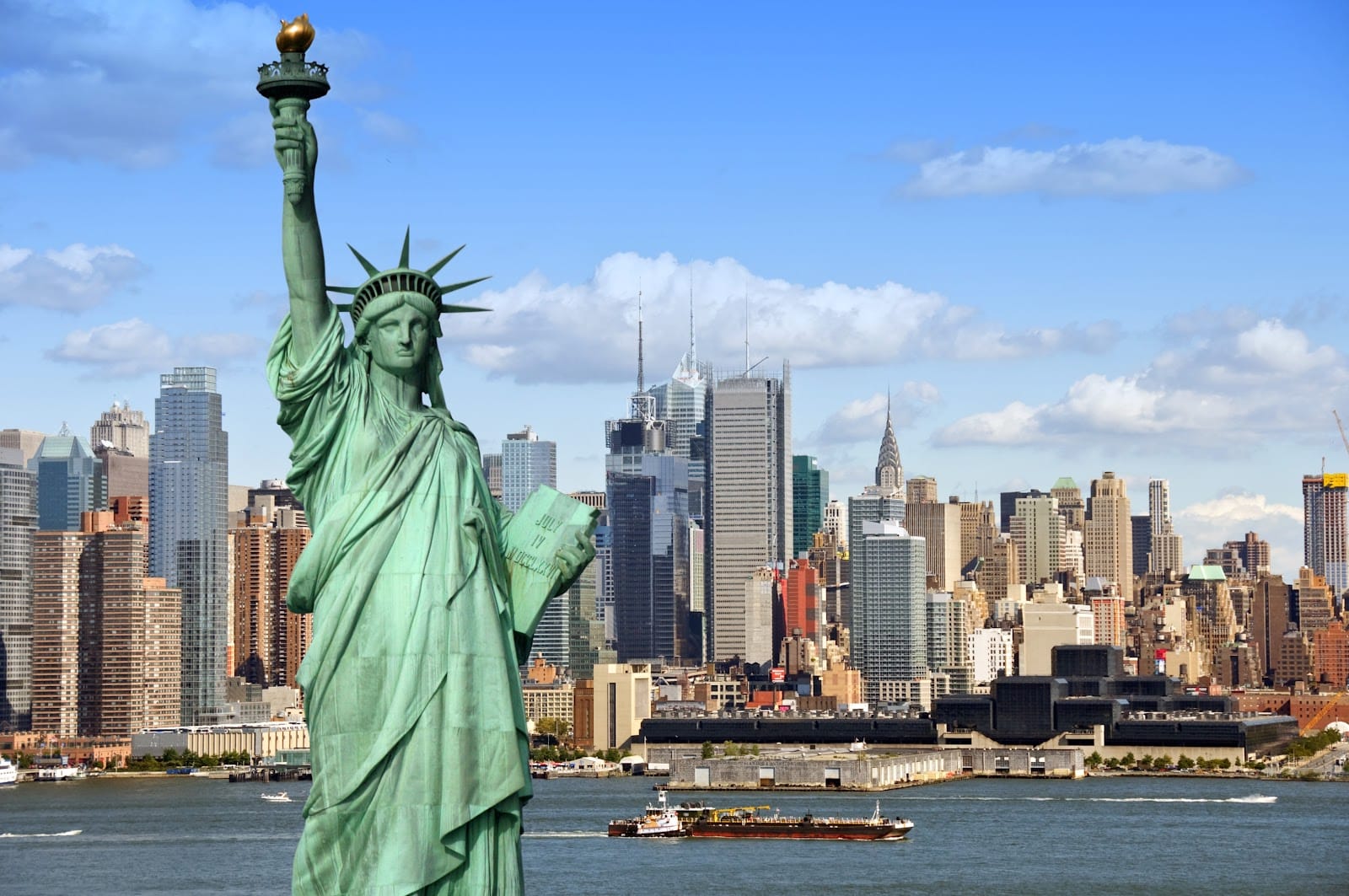Stay Legal, NYC! The Ultimate Airbnb Hosting Guide for the Big Apple

New York City, renowned for its vibrant culture, iconic landmarks, and bustling streets, has become a hotspot for Airbnb hosting. As the platform’s influence grew, so did the city’s regulatory response.
This guide is designed to help you navigate the intricate landscape of Airbnb NYC laws, ensuring you provide exceptional experiences for guests while staying compliant.

Short-Term-Rentals and NYC
New York City has always been a hotspot for tourists, so when Airbnb launched in 2008, it quickly became a go-to for visitors looking for a more local experience. But things weren’t smooth sailing for long.
In 2010, the city passed the “Illegal Hotel Law,” making it illegal to rent out a space for less than 30 days in multi-unit buildings unless the host was staying there too.
This was meant to protect housing and keep neighborhoods safe. Since then, the City passed Local Law 18 and began enforcing the new rules on September 5, 2023. Airbnb attempted to file a lawsuit in opposition but this was dismissed by a New York Judge. Only time will tell what effect this has on the city’s tourism economy but there’s no shortage of people looking to visit the Big Apple.
The new rules prohibit the rental of less than 30 days for residential housing or any place used for habitation unless occupants of the residence remain in residence at the time of the unit being rented. There must be no more than two paying guests in one room if the reservation is made.
Short-term-rental hosts should register their rental with the OSE and supply the personal details of the permanent resident with a map of the property with regular or emergency exit routes.
This new law means hosts have two options:
- Register with the OSE
- OR switch to a long-term business model.
You can compare long-term vs. short-term rentals to figure out which is best for you and if you want to make the switch to long-term, we have the guide for you.
Breaking Down Local Law for Airbnb Hosting in NYC
Before you embark on your Airbnb hosting journey in New York City, it’s crucial to familiarize yourself with the foundational rules for short-term-rentals.
Let’s look at the regulations you need to know as a host including Local Law 18, the short-term-rental registration process, and taxes.
Eligibility Criteria:
- Primary Residences: NYC mandates that only primary residences can be listed on Airbnb. This rule ensures that the city’s housing stock isn’t depleted by short-term rentals. This also means that the OSE will reject registration requests from those looking to sublet through a short term rental.
- Houses: Homeowners have more leeway, but regulations still apply. Single-family homes, given their independent nature, face fewer restrictions.
- Rent-Controlled Units: If you reside in a rent-controlled property, stringent rules against subletting, including Airbnb hosting, apply. This is to protect the rights of tenants and maintain the purpose of rent-controlled units.
- Duration of Stay:
- Short-Term Rentals: The city’s Multiple Dwelling Law stipulates that an entire apartment cannot be rented for less than 30 days unless the host is present. This rule aims to prevent the conversion of permanent residential buildings into de facto hotels.
- Extended Stays: Rentals exceeding 30 days are exempt from many of these restrictions. This provision recognizes the different nature of longer-term stays, which more closely resemble traditional leasing arrangements.
Guest Limitations:
- Typically, under New York City law, you can accommodate up to two guests per bedroom, but it’s essential to verify local regulations. This rule ensures that properties aren’t overcrowded, maintaining a comfortable living environment for guests and neighbors.
Other Considerations:
- Lease Agreements: Ensure your lease or homeowner’s association rules permit short-term rentals. Many agreements have clauses that restrict or prohibit subletting.
- Neighborhood-Specific Rules: Some areas might have restrictions or requirements in addition to city law. It’s crucial to be aware of these nuances to ensure you’re operating within the bounds of the law.
- Safety and Zoning Laws: All rentals must also be in compliance with the cities safety standards and zoning laws.
Understanding NYC’s Multiple Dwelling Law (MDL)
The MDL plays a pivotal role in shaping the Airbnb hosting landscape in NYC:
- MDL Explained: Originating in the 1920s, the MDL was designed to enhance living conditions in multi-family dwellings. A key provision for Airbnb hosts is the restriction on renting Class A dwellings for less than 30 days without the host’s presence.
- Implications for Hosts: This law essentially restricts many NYC residents from listing their entire homes for short stays unless they’re also residing in the property.
- Exceptions: Some properties, like single-family homes or those in specific zoning areas, might have different rules. Additionally, certain bed-and-breakfast establishments may operate under separate regulations. Class B status, which is granted through the city exempts booking services from the same registration requirements but the rules here are finnicky. You can go through the NYC municipal site for a detailed Class B multiple dwellings list but most residential buildings will not qualify.
Registration and Licensing in NYC
To legally host on Airbnb or other short-term rental platforms in NYC, adherence to registration and licensing protocols is paramount. It can be tricky to navigate the registration system so let’s take a quick look at the basics:
- Registration Requirements: “Local Law 18,” also known as the “Short-Term Rental Registration Law,” necessitates that all hosts register with the Mayor’s Office of Special Enforcement. This collaboration with platforms like Airbnb ensures only registered listings are active.
- Licenses and Permits: The Mayor’s Office maintains a list of buildings where Airbnb is prohibited. Some properties, termed “Class B multiple dwellings,” have distinct regulations and may not require standard registration.
- Procedure and Fees: Hosts can register online, and non-compliance can result in significant fines.
New York Data-Sharing Requirements
New York City requires home-sharing platforms like Airbnb to share some info about your short-term listings and you as a host. But don’t worry—before they pass anything along, they’ll ask for your consent first.
If you give the green light, Airbnb and other hosting and booking platforms will provide details about your hosting activity to the City.
Here’s the info we’ll share with the City of New York:
Host & Co-Host(s) Information:
- Name
- Physical address (street name, number, apartment or unit number, borough/county, and zip code)
- Phone number
- Profile ID number
- Profile URL
- Total amount paid to you by the platform
- The account name and an anonymized ID for the account you use to receive payments
Listing(s) Information:
- Physical address (street name, number, apartment or unit number, borough/county, and zip code)
- Listing name
- Listing ID number
- Listing URL
- Type of listing (e.g., entire place, private room)
- Total number of nights booked per listing
Tax Considerations for NYC Airbnb Hosts
If you’re hosting on Airbnb in New York City, there are some key tax responsibilities you’ll need to keep in mind:
Reporting Income
Any money you make from renting out your place is considered taxable income, which means it’s subject to both federal and state taxes.
Even if you don’t get a 1099-K form from Airbnb (which they issue if you make over $600), you’re still required to report all of your earnings on your tax return. So, whether you make $500 or $5,000, it all has to be reported.
Hotel and Occupancy Taxes
In New York City, there are additional taxes specifically for short-term rentals. You might have heard them called “bed taxes,” and they apply to any stays under 90 days. For instance, NYC adds a $1.50 charge per unit per day on top of other taxes.
In many cases, Airbnb collects these for you, but it’s a good idea to double-check and make sure everything’s being handled properly.
Deductions
You can lower your taxable income by deducting certain expenses related to your hosting. Things like:
- Property maintenance
- Cleaning fees
- Utilities and guest supplies (e.g., soap, towels)
These deductions can help reduce how much tax you owe, so be sure to keep good records of your expenses to take advantage of them. It’s a great way to save some money come tax season!
Consequences of Non-Adherence: The Mayor’s Office of Special Enforcement
If you don’t follow New York City’s Airbnb and short-term-rental regulations, it can lead to some serious issues for hosts. The city has these regulations to keep up housing market fairness, ensure safety, and maintain good vibes in the community. Ignoring them could land you in some hot water.
Operating unregistered short-term-rentals and violating Local Law 18 will put you in conflict with city officials, specifically the Mayors’ Office of Special Enforcement (OSE) and its director Christian Klossner.
Though hosts can dispute claims in an administrative hearing, this is a hassle best avoided.
Here are a few things that could happen if you don’t comply with city officials and operate illegal short term rentals in NYC:
- Fines: $1,000 for the first violation, with repeat offenses costing up to $7,500.
- Listing Removal: Airbnb and other platforms can take down non-compliant listings.
- Lawsuits: Hosts could face legal action if they keep breaking the rules.

Final Thoughts
While New York City offers a lucrative option for you as an Airbnb host, it’s essential to operate within the legal framework.
By following the state and city laws and’s guidelines—like understanding the Multiple Dwelling Law and registering with the Mayor’s Office of Special Enforcement—you can avoid fines, keep your listing active, and continue offering guests a true NYC experience.
At the end of the day the key to a successful short-term rental business is always a positive guest experience.
Your guests still expect an easy booking process, friendly host-guest interactions and a space that meets all quality and safety standards.
Thankfully, you don’t have to do it all alone. iGMS makes managing your short-term rentals easier by helping with guest communication, automating check-ins, and syncing your calendar, so you can stay organized and compliant. Whether you’re just starting out or looking to grow, iGMS has the tools to keep you on track while giving your guests the best experience possible.







